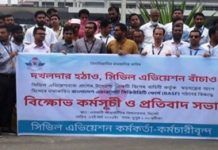Israel is deploying a mass facial recognition program in Gaza, conducting surveillance of Palestinians without their knowledge or consent, according to a new report from The New York Times.
As the publisher reports, speaking to Israeli intelligence officers, military officials, and soldiers, the facial recognition program is run by the Israel Defense Forces (IDF)’s military Unit 8200, which is “collecting and cataloguing the faces of Palestinians”. The program reportedly uses technology from Corsight, an Israel facial recognition company that provides services for government agencies, law enforcement, and corporations, alongside Google Photos.
The Times says this mass surveillance is being rolled out in Israel to identify members of Hamas, following the Oct. 7 attacks. The Israeli military also set up checkpoints — along roads Palestinians are using to flee the war — with facial recognition cameras, and soldiers have used security camera footage, videos uploaded by Hamas on social media, and also asked Palestinian prisoners to identify anyone affiliated with Hamas.
Corsight’s technology, the Times reports, has mistakenly identified several people including Palestinian poet Mosab Abu Toha as he was trying to leave Gaza amid the war. The program is reported to have flagged Abu Toha as a wanted individual, leading to his being stopped at a military checkpoint, after which Israeli soldiers held him in a detention facility where he was beaten and interrogated for two days. Israel intelligence officers told the Times that their guidelines for who to stop at these checkpoints were “intentionally broad”.
Google Photos has reportedly been used in tandem with Corsight’s technology, with intelligence officers uploading photographs of “known persons” and using the platform’s search function to identify people. An officer told the Times that the feature is effective in identifying someone even when a small portion of their face is visible.
The official union of Alphabet, Google’s parent company, condemned Google’s role in the
surveillance of Palestinians following the Times’ investigation. “Google Photos should not be available for this,” read the union’s post on X. “This is not what we built these tools for.”








